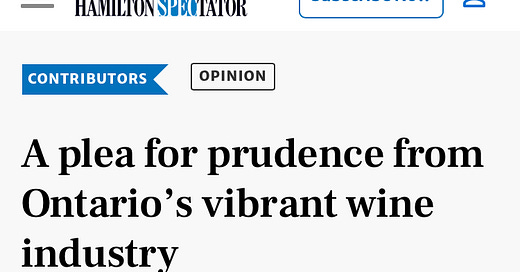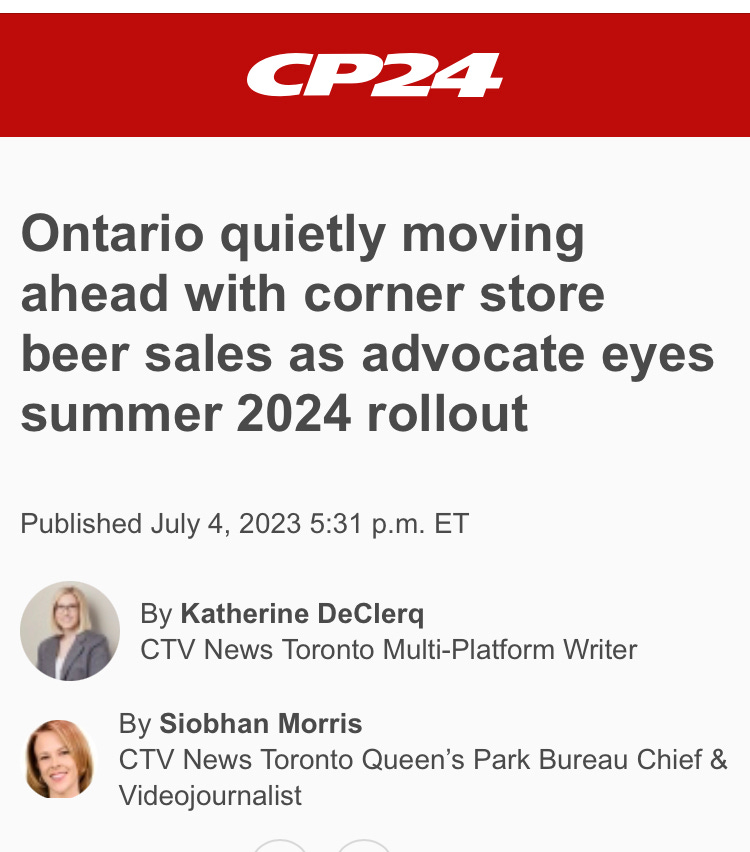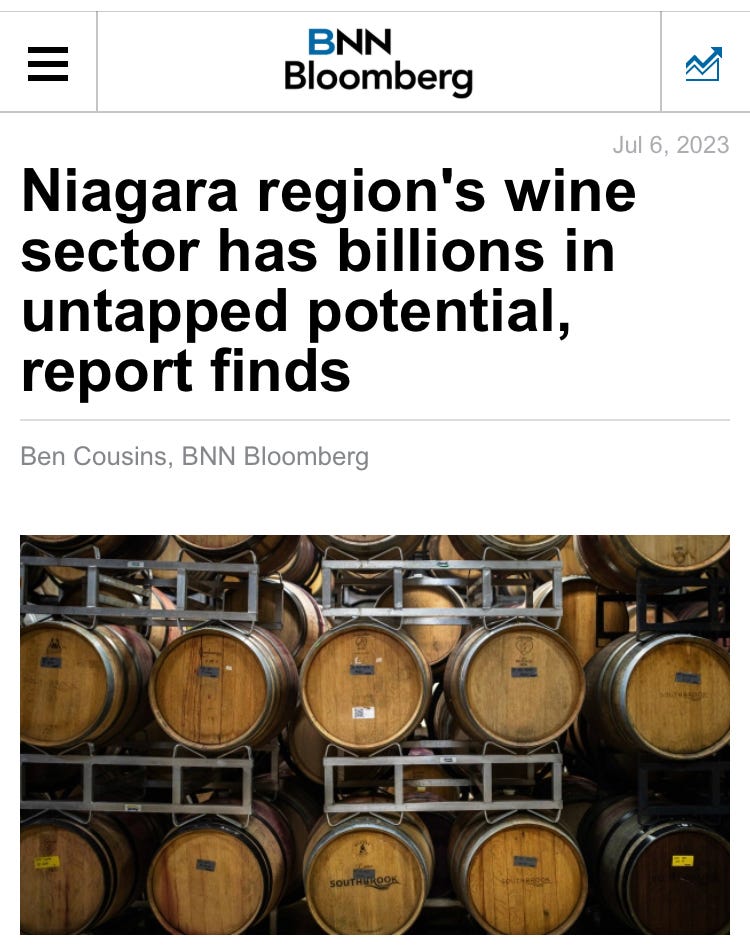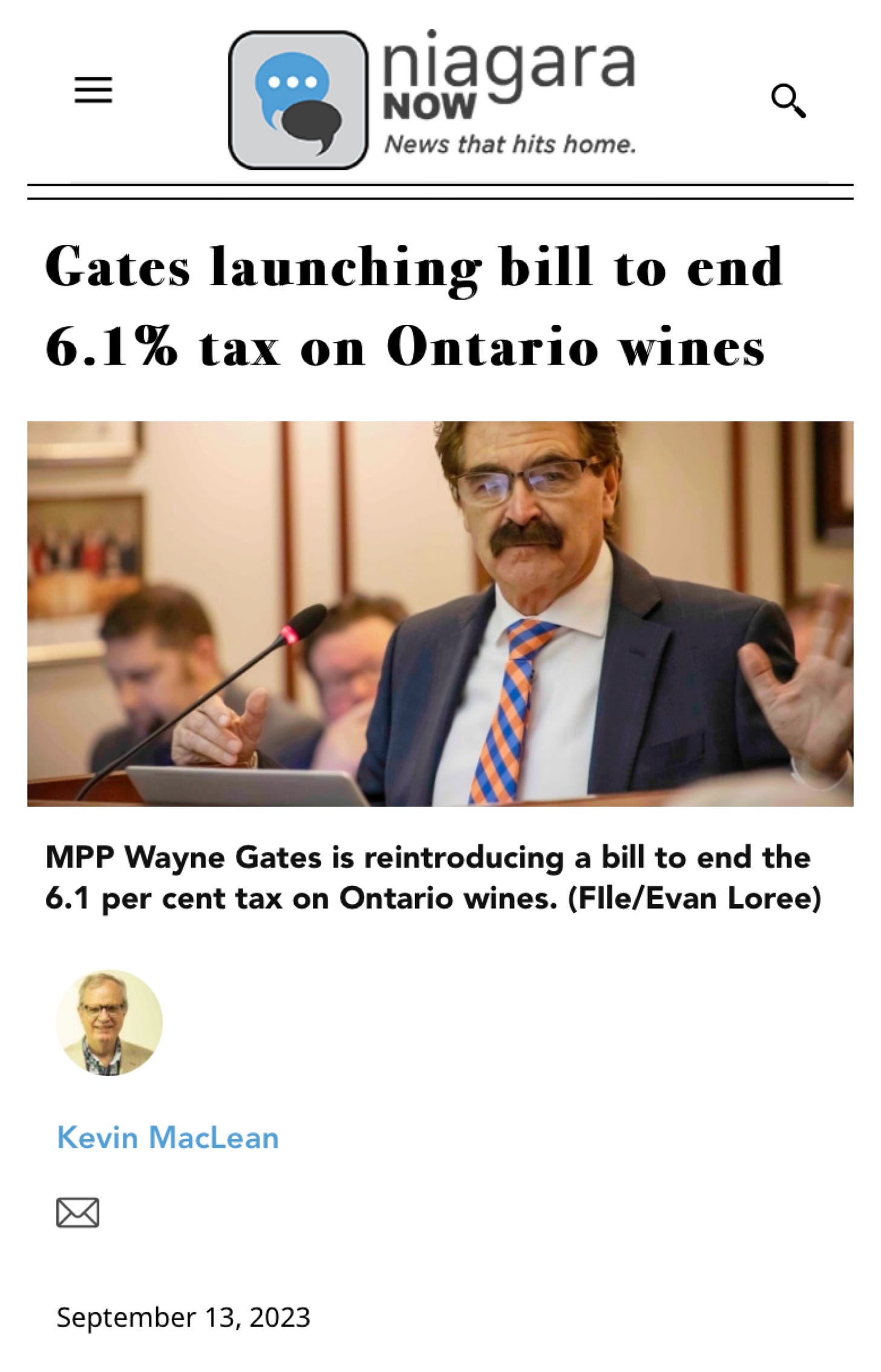Wine Rumours. In A plea for prudence from Ontario’s vibrant wine industry, Michael Graydon, CEO of Food, Health & Consumer Products of Canada, writes about Ontario's wine industry. Gradyon states that the industry “depends on sales channels that let Ontario wineries reach Ontario consumers — notably the LCBO,” which is the crown corporation responsible for the retail and wholesale of alcohol in Ontario. But according to the opinion piece, the Ontario government may be considering changing the model.
Rumoured changes to this sales model by Doug Ford’s government will shake the core of Ontario’s wine and grape growing industry. The premier is apparently considering handing over control of wine retail to the grocery giants…
Graydon explains that five retailers (Loblaw, Sobeys, Walmart, Costco, and Metro) represent 80% of Canada’s grocery sector, and such a concentration of power can be detrimental to domestic businesses, including Ontario’s wine sector: “As the bedrock of Ontario’s agri-food, tourism and hospitality sectors in Niagara, Lake Erie-North Shore and Prince Edward County, the wine industry’s significance cannot be understated.”
Quiet Consultations. In CP24's Ontario quietly moving ahead with corner store beer sales as advocate eyes summer 2024 rollout, it was reported that the government was “quietly consulting” with stakeholders on expanding alcohol sales to corner stores. It’s unclear if these quiet consultations are directly related to the above rumours about how wine is sold. The article only mentions wine in the context of the existing agreement with The Beer Store, expiring in 2025, which outlines how alcohol is sold in Ontario grocery stores. The article states that “participants [of the consultation] were asked to sign non-disclosure agreements, so little is known about what is on the table.” However, a spokesperson from the Ontario Minister of Finance’s office said “the government supports meaningful change to alcohol sales in Ontario.”
Untapped Potential. In BNN Bloomberg's Niagara region's wine sector has billions in untapped potential, Ben Cousins writes about the potential of Ontario's wine industry. A new report from Deloitte, The Niagara Cluster: Ontario’s Untapped Economic Engine, which was commissioned by Ontario Craft Wineries, Tourism Partnership of Niagara, and Wine Growers Ontario, found that the Ontario wine sector is well positioned to drive economic growth. Deloitte’s analysis shows that if given the right conditions, the future potential uplift for Niagara Region could be at least $8 billion in additional real GDP in 25 years. The report outlines the Ontario wine industry’s key challenges:
The tax regime for wine; the need for greater representation of Ontario wines in marketing and distribution; as well as adaptation towards climate change and sustainability best practices. Another significant challenge highlighted by the sector is the Ontario government's plans to expand wine retail into grocery and convenience stores, potentially changing the alcohol retail landscape significantly. The vertical integration of the industry means that changes to wine retail will impact the entire sector, including profitability and production.
The report also states that the heavy tax burden on Ontario wineries “is having a detrimental effect on the sector's ability to bring forth sector growth, attract capital investment, and procure higher prices for grapes.”
Calling for Ontario Wine Tax Reform (Again). Niagara Now reports that Ontario MPP Wayne Gates has reintroduced legislation to end the 6.1% Wine Basic Tax, which is a sales tax levied on Ontario wine sold at the winery. The Ontario wine industry has been calling for the removal of this tax for years. If passed, Bill 122, Supporting Economic Recovery and Renewal in the Niagara Region Act, would create a tax exemption for all on-site retail sales of VQA and 100% Ontario wine for all wineries in the province. Richard Linley, President of Ontario Craft Wineries, said the tax “punishes small wineries that sell their own wine to the public from their winery premises,” noting that “no other retail product pays a tax like this.” Gates introduced similar legislation in 2018 but the bill was never passed.







Secretly scheming to hand a crown jewel like the LCBO to big corporations (two of which are fucking American) fits the Ford profile perfectly.
Can someone tell me why this is a good idea?
Great